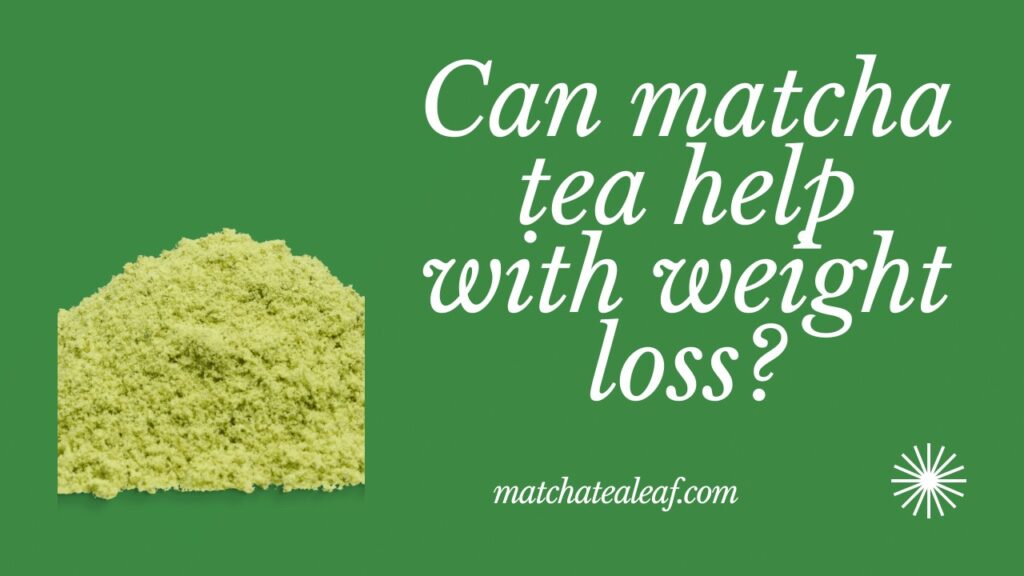
Are Matcha weight loss claims scientifically proven? There are many reasons for the popularity of Matcha, such as its earthy taste, vibrant colour, and purported health benefits, which have attracted fans worldwide. But one claim particularly piques interest is its potential role in weight loss. So, this post delves into the question, “Can matcha tea help with weight loss?“
Like most things in the realm of health and wellness, the answer has to be from the world of science and what scientists found about the health impacts of Matcha or Green Tea , specially on the weight loss issue. So here is a summary of four scientific studies in this regard.
Science Behind Matcha Weight Loss Claims
The basic premise on which Green Tea is considered a healthy drink is the presence of an antioxidant called Catechins, especially epigallocatechin gallate (EGCG) in Catechins. Among various kinds of green teas, the amount of EGCG is highest in Matcha, with up to 60% of the catechins in Matcha. The following three studies support the claim of the positive impact of green tea on obese people.
(i)Increased Fat Oxidation
EGCG is believed to significantly increase participants’ energy expenditure over 24 hours.EGCG may increase the breakdown of fat within fat cells and stimulate the oxidation of fatty acids for energy. The study –Ogasawara, & Yoshida,T (2018) published in the Journal of Nutritional Biochemistry – found that consuming green tea before exercise significantly increased fat oxidation during a brisk walk compared to a placebo. This suggests that matcha green tea may enhance fat burning during physical activity.
(ii)Reduce Calorie Intake
EGCG may have appetite-suppressing properties, potentially leading to reduced calorie intake. A European Journal of Clinical Nutrition publication of studies conducted by Hursel et al. (2010) concluded that green tea, including match, may modestly increase fat burning and energy expenditure. However, the effects were small and inconsistent across studies.
In another study, (iii) Drewnowski & Stephan (2012), caffeine presence in green tea ( highest in Matcha among green teas) can modestly reduce calorie intake over time. This suggests that the caffeine in matcha could potentially contribute to weight loss by suppressing appetite.
(iv) Reduce Waist Circumference, Triglyceride
A study by Ying Wang, et all; published in Haliyon in Volume 9, Issue 11, November 2023, e21228, titled “Effects of green tea catechin on the blood pressure and lipids in overweight and obese population-a meta-analysis” concluded that in overweight and obese people green tea catechin could reduce waist circumference and triglyceride (TG) and increase high-density lipoprotein cholesterol.
Warning Notes on Matcha Weight Loss Effect
Remembering that these studies often involve specific protocols and controlled settings is essential. Applying these findings directly to real-world scenarios requires caution. So, Matcha alone is unlikely to be a magic bullet for weight loss.
Secondly, the studies mentioned above often use concentrated green tea extracts containing significantly higher EGCG levels than a typical serving of matcha. So, readers should note that the amount of EGCG in matcha tea latte can vary.
Thirdly, while Matcha is relatively low in calories, adding milk, sweeteners, or other ingredients can significantly increase the calorie count.
Based on scientific studies, there are reasons to believe that the Green Tea of which Matcha is considered one of the best varieties and can be very helpful in weight loss.
✓ Expert Reviewed: This content has been reviewed by qualified professionals in the field.
Last Updated: December 25, 2023
Disclaimer: Content is for informational purposes only. Professional advice should be sought for specific situations.
Editorial Standards: The Tea Research Team at matchatealeaf.com unites premium tea industry professionals with advanced AI research tools to create deeply informed, engaging content on matcha, green tea, and black tea. Drawing from years of firsthand experience and global industry insight, the team blends tradition with technology, ensuring every article is accurate, inspiring, and rooted in genuine expertise—making us a trusted source for tea lovers worldwide. All content follows strict editorial guidelines with fact-checking and expert review processes. Read more about Tea Research Team